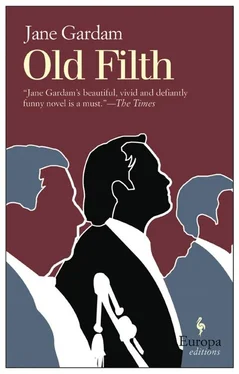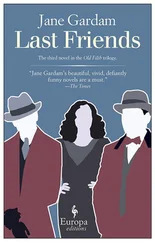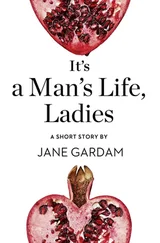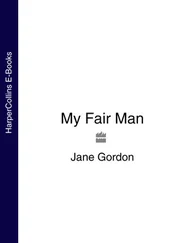“This is not the time of frenzy,” he heard himself say out loud as the images of the day merged into dreams. He was clinging to someone on a boat-deck and the sea a silver skin. There was screaming but it was somewhere else and hardly woke him. “We dealt with all that,” he said, “in what they call my long, untroubled and uneventful life.”
“Sleep, Filth,” said a voice. “Nobody knew you like I did.”
Which of them said that? he wondered.
Yes, yes, yes,” said Auntie May of the Baptist Mission, striding up the gangplank. “Now then, here we are. Excellent.”
The motor launch, now and then trying its engine to see whether it would be safe to let it die, stirred the black water around it, rocked and snorted. All across the wide river, small waves slapped and tipped. Heat seemed to drip from the trees like oil. It was summer, the monsoon coming, and when it did the river traffic would die. This was why they were getting the baby home at only one week old. Otherwise he would have been stranded in the Port where he had gone to be born. Here they were, safely home, but it had been a near thing. A two-day journey and Auntie May, after she had seen him safely to his father’s house, would have to make it back again herself, alone and at once.
On the journey out to the Port not much more than a week ago the baby not yet born had travelled the river in a native boat with his mother and the Malay woman who was now climbing the grass ladder to the landing stage, sorrowful and frightened, behind Auntie May. She had carried her own baby for she was the wet nurse who had been taken to Mrs. Feathers’s confinement in case of an emergency should Mrs. Feathers have been unable to feed the child herself.
Nobody had expected Mrs. Feathers to die. The Clinic at the Port was good, the Baptist Mission efficient and known to her already for she had been a nurse before marriage to Feathers, the District Officer of Kotakinakulu province. She was a tough, lean Scot, like her husband, solid as a rock. She had nursed him through his war wounds of 1914, quieted his shell-shock, coped with his damaged ankle, borne his mad rages, loved him. She had been born in the East herself, loved the climate, the river, the people, and had never ailed for a day of this her first and straightforward pregnancy. She had brought to the Clinic only the wet-nurse and her prayer book, knowing that she would be back within the month. As she left she had been helped a little into the open boat but had not looked back. The landing stage stood on its high crooked stilts with only one person watching the boat disappear round the bend of the river — a girl of twelve called Ada, the wet-nurse’s eldest child. As stick-thin as the landing stage itself, the girl wound her arms about the rough branches and stayed long after the boat had disappeared.
Comfortable in the long low boat, Mrs. Feathers in her loose cotton dress — never a sarong — she was the District Officer’s wife — had scarcely looked pregnant. The baby had dropped low in the womb and become very quiet, which its mother knew meant the birth was imminent. In the Long House where they had rested that night, she had not worried that the child might be born early. With the peaceful happiness that often predicts labour, she had smiled and knitted a tiny lace jacket, fondly taking a strand of wool at a time and loosening it, holding it high. She had knitted most of the night, listening to the baboon on the roof clacking like a typewriter in short, unaccountable snatches of baboon monologue.
The wet-nurse, her own baby beside her, lay on the floor, terrified at being a day’s journey down river from home. She whimpered.
“Now, now,” said Mrs. Feathers, patting her. “Hush, don’t be afraid. Tomorrow we’ll be at the Port and the next day the new baby will be here. I know. Then soon we shall all go home.” And she held up the jacket and looked at the pattern by the light of the kerosene lamp on the floor. She knew that the baby would be a girl and was finishing off the little garment with pink lacy scallops.
She finished the last scallop the following night in the Clinic but gave birth to a long, rangy, red-headed, eight-pound boy. She was delighted with him (Edward) and passed the jacket to the wet-nurse’s silky brown baby, who never wore it, and the next day puerperal fever began its cruel course and three days later Mrs. Feathers died.
Ten days after that, the Welsh missionary Auntie May was plodding firmly on board the river steamer which might be the last to run before the onset of the monsoon, one big hand on the rail of the gangplank, the other arm tight round the swaddled child. Behind came the weeping and now indispensable wet-nurse with her baby. She had wept for two days. Auntie May never wept.
She had, however, felt a great plunge of spirits as the river boat rounded the bend of the river before the District Officer’s landing, for there was nobody there except for the same young girl sitting at the ladder’s top with her arms tight round her knees. The boat lay in the water, silent, waiting for people to appear. Nobody. Auntie May knew that though there was neither telephone nor mail direct to the District Officer’s quarters, and their attempt to send a cable had failed, the news of his wife’s death would certainly have seeped through to Alistair Feathers. She had half expected him to turn up at the Port to bring his son home himself. News flies fast through the jungle. Attendance at his wife’s funeral would of course have been impossible, for the body had to be buried immediately, then, in Kotakinakulu province.
“Not here,” Auntie May allowed herself to say.
The wet-nurse was not surprised, however. Mr. Feathers had not come down to the landing stage to see his wife leave. Their goodbye — for them, a very affectionate goodbye — a kiss on the cheek (however had this child been conceived?) — had taken place inside the verandah of the house. A quick embrace, then out and down the verandah steps, Captain Feathers calling to the others to be ready. The wet-nurse was being well-paid and had been groomed for her possible job of nursing the baby with quantities of good food, and watched over against the betel nut and alcohol. Her elder daughter had come down to the landing stage, helped Mrs. Feathers to the gangplank — Mrs. Feathers had suddenly turned and given the girl a kiss — and watched the boat sidle towards the current and then pass from sight.
Here the girl was now, against Captain Feathers’s orders, and she had watched for two days, her legs pressed against the banana-leaf barrier, desperately watching. At the Port these choppy waves had been nowhere to be seen and the river had run oily and thick, seemed hardly to move. Here though, up river, there were no glow-worm lights on the great invisible nets, no sounds of fishermen calling from boat to boat. No ghostly cartwheels of weed, flying like skaters on the surface of the running river, almost outstripping it. No crocodile snout at the Port. No plop or scream of waterbird dropping on prey. Here on the landing stage, up river, fat metallic lizards moved about, long jaws angled for grubs in the leaves. They moved silently around her feet. She kicked them away. They were harmless things.
And here was the river boat. Would Mrs. Feathers be there? If she was indeed dead her strong, young body, her bright happy face would be already decaying in the wet earth of the Port’s Christian cemetery.
The boat’s engine reawakened with a roar and the boat approached the landing stage. Ada, the brown girl, twisted her arms tighter among the banana leaves. Here came lights. Men — not the District Officer — appeared to catch ropes.
The boat anchored, the engine stopped, the boat rocked and shuddered and Ada’s mother and her baby sister and big Auntie May from the Mission began to disembark. Auntie May carried a light bundle.
Читать дальше












